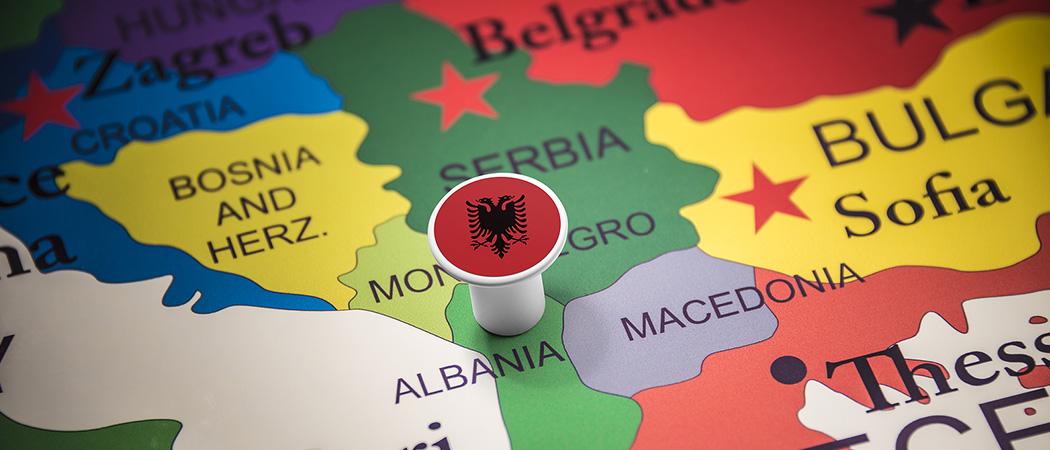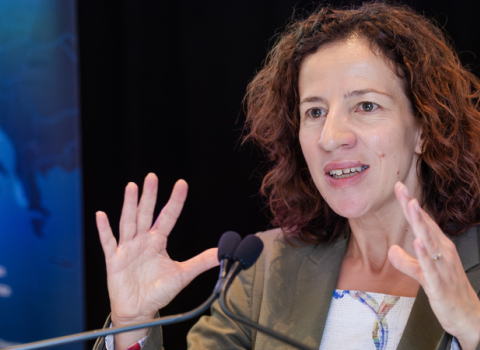Schemes that enable knowledge exchange and temporary stays abroad are viewed as making a contribution to slowing the brain drain and preventing another R&D fault line developing if/when these countries become EU members

New research points to growing participation of Western Balkans researchers in EU academic exchange programmes, as the EU takes steps to welcome countries in the region as associate members of the Horizon Europe research programme.
Over the past few decades, many scientists, engineers, and technicians from the Western Balkans have left to work in northern Europe and north America. A similar brain drain has been taking place in central and eastern Europe, prompting the EU to re-launch talks on building a more inclusive European Research area and investing more Horizon Europe money to widen participation in research projects and boost R&D performance in poorer member states.
To avoid the creation of another R&D performance fault line in the near future, the Commission is now attempting to target R&D investments to countries in the Western Balkans that are candidates to join the EU.
According to the European Commission, Horizon 2020 funding for research projects in the Western Balkans tripled between 2014 and 2019. About 845 researchers were funded across 290 grants. EU funds helped Serbia build a centre of excellence in advanced technologies in sustainable agriculture and food security.
Another collaborative project in Albania, Bosnia and Herzegovina, North Macedonia and Serbia is integrating knowledge on raw materials and subsurface energy.
EU commissioner for research Mariya Gabriel and her counterpart Olivér Várhelyi, who is responsible for the neighbourhood, are working on including research and innovation in a major economic development plan for the region, as part of EU accession talks. Accession negotiations are already well underway with Montenegro and Serbia, but progress has been slower with Albania and North Macedonia.
Slovenia now holds the rotating presidency of the EU Council and wants to help countries in the Western Balkans to become fully associated with Horizon Europe and help researchers in the region build successful careers at their home institutions.
Until then, mobility schemes that enable knowledge exchange and temporary stays abroad are seen as one way to slow the brain drain.
The research by Klaus Schuch of the Centre for Social Innovation, which was published by the Austrian Platform for Research and Technology Policy Evaluation, shows more and more researchers and academics in the Western Balkans are participating in European mobility schemes. Schuch looked in particular at how Albania, Bosnia and Herzegovina, Kosovo, Montenegro, North Macedonia and Serbia are faring in regional and European mobility programmes.
Participation in the EU’s Marie Skłodowska-Curie Actions (MSCA) for doctoral networks, post-doctoral fellowships and staff exchanges is low in absolute numbers. But the programme is well used when put in the context of existing scientific human capital in the six countries, the research shows.
ERASMUS+ is also intensively used by students in the six countries, while participation in the European Cooperation in Science and Technology programme (COST) has increased remarkably.
The major problem is that outgoing mobility remains higher than incoming mobility, which could point to issues with the underdeveloped research infrastructure in the region.
In the Central European Exchange Programme for University Studies (CEEPUS) for instance, institutions from Serbia, Slovenia, Moldova, Poland and North Macedonia are sending more students abroad than they are taking in.
The number of people participating is tied to the number of higher education institutions in each country, the country’s size and its research capacity. However, the CEEPUS data reveals that Montenegro and Bosnia-Herzegovina, Slovakia, North Macedonia, Croatia, Romania and Serbia have an above average relative participation in CEEPUS.
According to Schuch, participation in these programmes is likely to continue grow if all six countries become full members in ERASMUS+ and if COST can at least maintain its scope and size in Horizon Europe.
While both CEEPUS and ERASMUS+ are used by students and researchers from the Western Balkans, the numbers are lower for MSCA. Serbia has participation numbers comparable with Croatia, Romania, Hungary, Bulgaria and Slovenia, but researchers the other five countries in the Western Balkans participate less in MSCA. With the exception of Kosovo, all countries have more outgoing than incoming researchers .
The research also notes large differences in MSCA success between the countries. The average success rate in EU member states and associated countries hovers around 12%, but 19.04% of applicants from third countries get a MSCA grant.
The research paper is available here.





 A unique international forum for public research organisations and companies to connect their external engagement with strategic interests around their R&D system.
A unique international forum for public research organisations and companies to connect their external engagement with strategic interests around their R&D system.